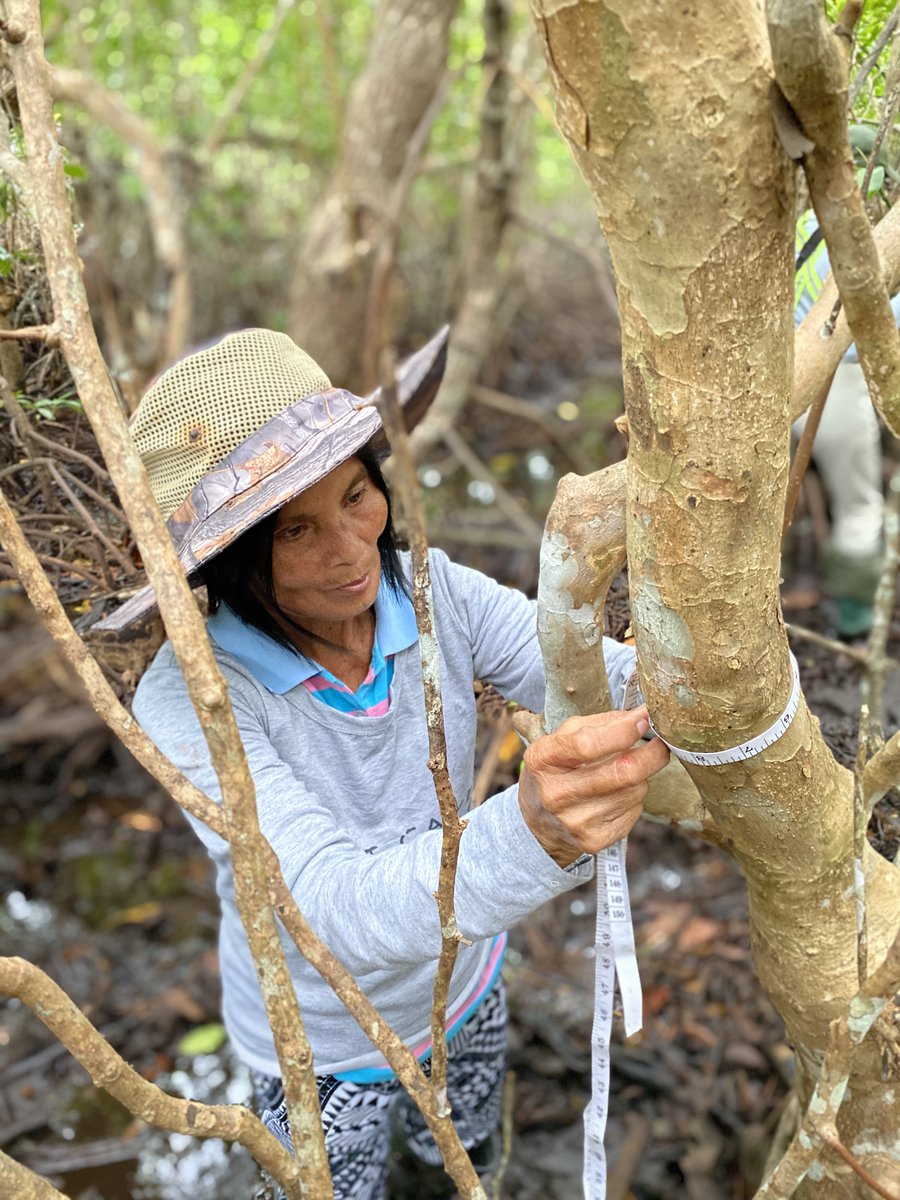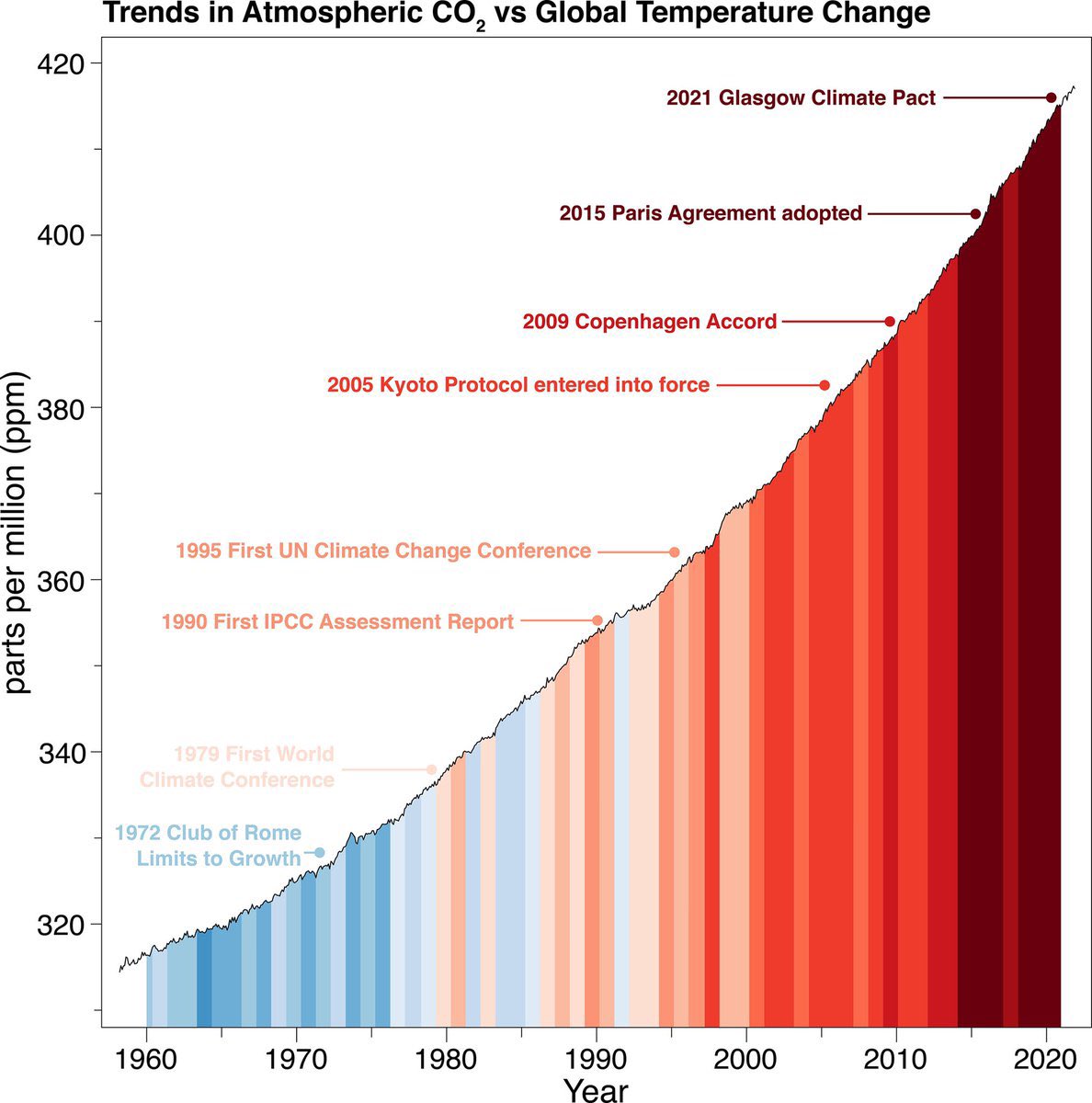
My last research trip before finishing up my Ph.D. thesis was the culmination of everything I have worked for in the past five years
Here's a quick summary of an alternative financing model for nature conservation that relies on the value of fair data and open science 👇

Here's a quick summary of an alternative financing model for nature conservation that relies on the value of fair data and open science 👇


Currently, nature conservation relies heavily on donations - or carbon credits. Donations are not really scalable and - well - carbon credits are mostly super fishy (e.g. greenwashing) 👎
What if there is a third (alternative) way that builds on top of our data economy?
What if there is a third (alternative) way that builds on top of our data economy?
Data is precious in our data-driven economy, and we can nowadays provide robust valuations of every data point for AI tasks in a principled and fast way.
Here are some methods that we developed based on Shapley values:
(1) proceedings.mlr.press/v89/jia19a.html
(2) vldb.org/pvldb/vol12/p1…
Here are some methods that we developed based on Shapley values:
(1) proceedings.mlr.press/v89/jia19a.html
(2) vldb.org/pvldb/vol12/p1…
We can see how valuable especially forest data from the Global South is!
Current satellite-based biomass estimation or tree segmentation models overestimate in tropical regions and perform badly on tropical forest canopies.
ojs.aaai.org/index.php/AAAI…

Current satellite-based biomass estimation or tree segmentation models overestimate in tropical regions and perform badly on tropical forest canopies.
ojs.aaai.org/index.php/AAAI…


But data is also human - there is a story behind every measurement. In the case of forest data, the data originator has to fight through dense vegetation, endure hundreds of mosquito bites, etc ...
@glenweyl and others advocate for treating "data as labor"🌱 - so important!
@glenweyl and others advocate for treating "data as labor"🌱 - so important!
Moving from a notion of open data to a notion of fair data is critical - especially for the environment, where most of the world's forest areas are located in the world's poorest areas (measured by GDP)
nature.com/articles/s4155…
nature.com/articles/s4155…
So together with @eth @medialab @filecoingreen @bjornlutjens @LucCzech @WWF @fsc_if @SimplexDNA @GainForestNow @CeloOrg @frcamillerivera @DavaExplorer and many more, we build a system to reward local communities for data. End-to-end. And tested it out in Cagwait, Philippines 🇵🇭 

This is how it works.
First (after informing the local governor) we held training sessions around Cagwait and Aras-Asan with local communities and teach them to identify and measure mangrove forests.
Mangroves are super important, we lack a lot of data for blue carbon for ML
First (after informing the local governor) we held training sessions around Cagwait and Aras-Asan with local communities and teach them to identify and measure mangrove forests.
Mangroves are super important, we lack a lot of data for blue carbon for ML

Second, local community members collect data through a digital app in teams of two.
We provided a superlinear reward: Everyone gets rewarded extra when the group together achieves a total amount of measurements.
Result: We saw so many happy faces and a lot of collaboration 🌱

We provided a superlinear reward: Everyone gets rewarded extra when the group together achieves a total amount of measurements.
Result: We saw so many happy faces and a lot of collaboration 🌱


Next, the data gets uploaded into a database. Not always easy in remote places.
Kudos to the amazing @frcamillerivera and her rockstar NGO team at Oceanus waiting patiently for the data to be uploaded.
@SpaceX can we get Starlink internet ASAP?

Kudos to the amazing @frcamillerivera and her rockstar NGO team at Oceanus waiting patiently for the data to be uploaded.
@SpaceX can we get Starlink internet ASAP?


Every data collector has a unique wallet address on @CeloOrg which we used to track data ownership and data payments.
In the end, we ended up paying for each measurement 66 cents, and each team collected on average 30-50 trees per day - stunning!
In the end, we ended up paying for each measurement 66 cents, and each team collected on average 30-50 trees per day - stunning!

At the same time donors can now clearly see how much of their donations actually ended up with community members (we guaranteed 100% for the pilot project).
Angelo from @CeloOrg helped us offramp the stablecoins into Pesos on the spot.

Angelo from @CeloOrg helped us offramp the stablecoins into Pesos on the spot.


Besides paying community members for data collection of large mangrove carbon, you can also pay them for taking a picture of freshly planted mangrove saplings or eDNA samples (thank you @SimplexDNA).
The possibilities of data-driven impact-linked payments are endless 🌱

The possibilities of data-driven impact-linked payments are endless 🌱


In the end, we celebrated the community for their amazing efforts with (real-world and digital) certificates as well as a celebration boodle fight dinner 🍲
(tbh I had no idea that you eat boodle fights standing, so I was looking for a chair non-stop)

(tbh I had no idea that you eat boodle fights standing, so I was looking for a chair non-stop)


The impact of the collected data can already be seen. @thinkdatasci, a data science company based in Manila, was already able to train super cool classifiers and improve/fine-tune existing tree segmentation models!
We started uploading the data here: gainforest.app/overview/24
We started uploading the data here: gainforest.app/overview/24

With the power of #DeSci, data licensing, and clear data ownership, commercial models trained on top of this data can then continue paying back the data originators!
We hope this work inspires new ways of thinking about how we can finance nature and its amazing stewards 🙏
We hope this work inspires new ways of thinking about how we can finance nature and its amazing stewards 🙏
Lastly, the local community was able to raise funding for all mangrove sapling they want to plant this year 🌱 - and the corporate donor specifically mentioned that the transparency and provided data was key to their funding decision 💚🔑 #radicaltransparency
• • •
Missing some Tweet in this thread? You can try to
force a refresh





